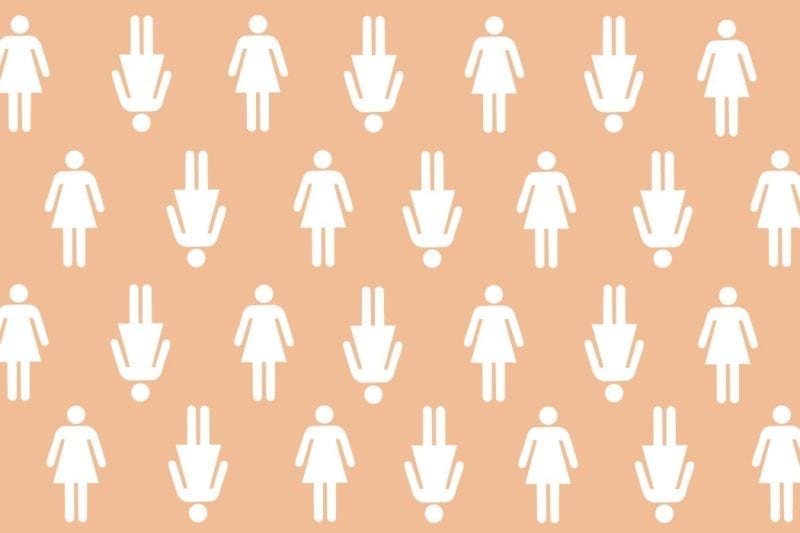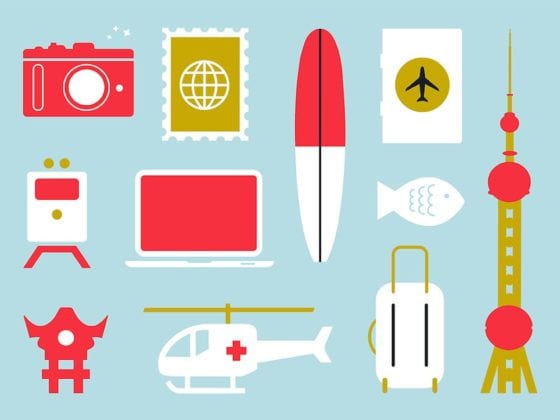A Note From The Editor: Aiming to be a catalyst for positive change, we want to open a safe place for answering questions and keeping you prepared as you explore and go forth in the world. April is designated as Sexual Assault Awareness Month, so we’re lending listening ears to our friends at Her Campus. They work on college campuses across the nation to reduce stigma and increase awareness about sexual assault.
Please note: This article contains information about sexual assault and violence, which may be triggering for survivors.
In a study of undergraduate women, the Centers for Disease Control and Prevention found that 19 percent of collegiettes experienced attempted or actual sexual assault since entering college. That’s nearly one in five collegiettes.
Unfortunately, odds are that even if you never experience this kind of traumatic violence, someone you know will. With that in mind, it’s important to know how to protect yourself, report assailants, help your friends who are victims of sexual violence, and find help yourself if you do.
Understanding & Preventing Sexual Assault
In a report compiled by the New York State Coalition Against Sexual Assault, almost 50 percent of those who experienced unwanted sexual activity did not consider the case to be assault. Before you can properly protect yourself — especially from those you know and think you can trust — you should know how to define sexual assault so that you’re fully aware when you are a victim.
Any time both people cannot give consent, it is considered sexual assault. When you’re intoxicated, you cannot give consent. The absence of saying “no” is not consent; consent is signified by a clear, unambiguous “yes,” whether that’s verbal or conveyed otherwise. Being in a relationship with someone does not qualify as consent. Any time you decline consent and it is violated — no matter if it’s violated by a stranger, friend, or boyfriend, and no matter what you’ve done or worn leading up to the moment of consent — it’s considered sexual assault.
Being in a relationship with someone does not qualify as consent.
Protecting Yourself
Consider this: In the report compiled by the New York State Coalition Against Sexual Assault, 50 percent of sexual assault cases were reported to have occurred when either the victims or the perpetrators were under the influence of alcohol, and almost 60 percent of cases occurred when individuals were on a date.
Completely avoiding dates and/or (for many people) drinking aren’t the solutions here. Both can be fun when done responsibly. Yet, being vigilant when consuming alcohol and when dating can be a solution.
There are a number of ways you can reduce your risk of sexual assault:
- Drink in moderation.
- Stick with friends while drinking.
- Keep an eye on your drink.
- Charge your phone.
- Trust your instincts.
- Date in public places.
- Set limits.
- Don’t assume you can trust someone.
Important Contact Numbers
In the event of a sexual assault – if you do choose to report your sexual abuse – you can either report it directly to the police or go to the hospital for a rape kit or other medical attention. They will call the police for you. While you can report your rape months after it occurred, the sooner you report, the better, so that DNA samples can be collected. But you may not want to relive the incident right away, which is understandable.
That said, a sexual assault victim may find it too difficult to confide in a friend, seek professional help, or report what happened to the police. But you may want to tell someone who can give you advice, help you cope, and give you the feeling of anonymity. Save the number for the National Sexual Assault Hotline (800-656-HOPE) in your phone. They will connect you with the nearest RAINN member center. Your call is confidential and anonymous. And because they connect you with someone local, the person you speak to will be properly equipped to discuss the rape and sexual assault laws in your state.
Additionally, you should also save the number of your local police department and the number of the nearest hospital in your cell phone, just in case.
Remember: One of the best ways to both protect yourself against sexual assault and start the healing process in the event that one occurs is to lean on your on-campus support system: your friends, your R.A., and student services. Stay in close contact with your friends when you’re out (and especially when drinking), alert your R.A. or other on-campus officials to any potential issues you may pick up on. Use knowledge as power by learning more about consent from student services.
For more information about sexual assault in college and staying safe on campus, buy Her Campus’ new book, The Her Campus Guide to College Life.
Image via Milena Mallory












4 comments
As pleased as I am that Darling addressed this important issue, I have to say I’m a little disappointed. The section on “ways to reduce your risk” was so upsetting…it is perpetuating the idea that victims are responsible for preventing sexual assault, rather than encouraging perpetrators to rethink their behavior. Your drinking behaviors, travel habits, or party going habits DO NOT cause rape or sexual assault. Rapists do.
I have to completely agree. The line “being vigilant when consuming alcohol and when dating can be a solution,” in particular was extremely upsetting. Does that mean that if a victim is not vigilant they are at fault if they are raped? Or that if you follow all the guidelines there’s 100% assurance you will not be raped? I think not. I understand in the imperfect world we live that it is necessary for victims, in this case, females to worry about these things. However, the ultimate solution is for rapists to stop raping, not for victims to be blamed and shamed. I understand that the primary audience is females and that’s who the article is geared to, but it’s still important that the responsibility of preventing rape is not put on the shoulders of victims.
Because women apparently lack agency and cannot be held responsible for their own actions and risk-taking behavior. Right.
I am so pleased the Darling team wrote an article on Sexual Assault Awareness Month especially since I am sure not many are aware of what goes on in and outside the work environment. Let alone many assume any sexual abuse especially trafficking goes on in third-world countries. Guess again? Any type of trafficking goes on in our own neighborhoods and now the public bus systems are partnering with us, NGOs (i.e. World Vision, Oasis USA, and Salvation Army) are all partnering to spread awareness. As a Justice Advocate and Child Ambassador I have the opportunity to education, mentor, encourage others to sponsor vulnerable, spread awareness, partner with the government/law enforcement, and now building a bridge with the faith-based community. I look forward being that vassal and see how you can be a part of this cause in more depth.
Questions for you:
How has this issue affected you? How did you first find out one need someone to hear where their coming from?
Blessings.